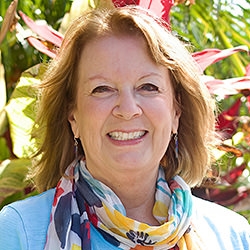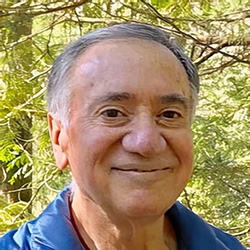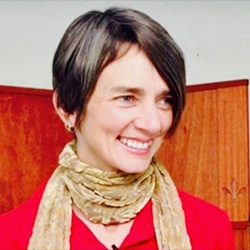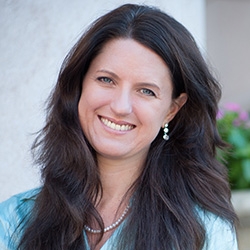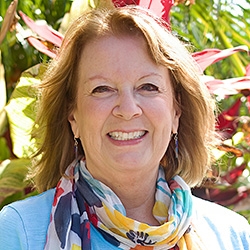
Search Results: suffering
-
Less than 2 weeks ago from the time I’m writing this letter, Hamas militants crossed from Gaza into Israel and killed more than 1,300 people, most of them civilians. Israel then retaliated and killed over 3,000 Gazans, most of them civilians. The death rate continues to increase every day.
-
In this inspiring audio, Kelly Bryson, veteran CNVC Certified Trainer and author of many NVC books and articles, explores the importance of setting a clear intention and then clarifies the difference between pain and suffering.
-
How we relate to life parallels how we relate to others! Learn how to have a more healthy way of relating to situations and people when your needs are not being met. Bob Wentworth offers some wisdom on moving from suffering to aliveness through not fighting what is.
-
-
This article outlines a four-part transformation process to help us recognize what's giving rise to our suffering and resentment -- and transform it into more freedom, creativity, and choice.
-
Why is it so difficult to change our patterns even when we want to, even when we experience shame or despair about them? Arnina Kashtan offers some of the common pitfalls and concrete steps to overcome them in the future.
-
Ask the Trainer: "What guidance do you have for working with enemy images? Can you say some things about processes and/or exercises that can bring relief from this trap?"
-
This gentle, healing telecourse recording will assist you in unearthing feelings and issues that have become tangled up with loss, enabling you to face whatever is blocking your grief.
-
The way we talk to one another, and think about or react to our lives, may seem "normal" but eventually, this may reach a point where we realize something isn't working, and we make adjustments. But often the suffering continues if we aren't addressing root causes. In studying NVC we can become more aware of what we are doing and its effects -- plus imagine and implement alternatives that lead to greater fulfillment for self and others.
-
Reveal, own and share the inner chatter that plays over and over in your head, in between the words you speak aloud. Arnina Kashtan will help you discover, embrace and open up the places inside that you’ve hidden and judged.
-
The Compass – Arnina Kashtan's in-depth transformational process – is specifically designed to support you in reliably deepening your understanding of your own and others' conditioning, and finding ways to reclaim your full connection with yourself.
-
The Compass – Arnina Kashtan's in-depth transformational process – is specifically designed to support you in reliably deepening your understanding of your own and others' conditioning, and finding ways to reclaim your full connection with yourself.
-
Listen to Robert describe the five core principles of Living Compassion and the relationship of needs to spirituality. Great material for reflection and reference!
-
When faced with someone’s grief for the world, how do you engage with them in a way that is informed? In this session, Kristin suggests exploring what they might be grieving… what they’re afraid of losing… and what it is that they love.
-
Anger, guilt, shame, and shutdown are often based on reactivity and “should” thinking. They narrow and distort perceptions, which can bring more suffering. So instead, feel them without resistance, nor acting on them. Bring clarity by naming your observables and thoughts, plus your underlying vulnerable feelings, needs and self-responsibility. Then mourn what needs were, or are, unmet. Only then choose what actions to meet needs.
-
Blame is a misguided habit that's used to avoid pain and suffering, offering only a momentary distraction and oversimplifies complex histories. It also disconnects us from choice and agency, blocks us from discovering more about ourselves and others, and can keep us from having compassionate, self responsible conversations. Instead, we can practice speaking in terms of impact and notice our experience without trying to escape it.
-
Yvette Erasmus suggests that making peace with our feelings reduces suffering. Sometimes we want to hurry through our feelings and just feel better.
-
Trainer Tip: When we try to make another person fit into a reality that we prefer in order to meet our own needs everyone suffers. Instead, bring your focus back to yourself. Notice which of your needs are met or unmet when you spend time with someone. Don’t judge them; just focus on your feelings and needs. Then, decide whether continuing the relationship will meet them.
-
When we feel pain about humans relate to, and conflict with, one another on Earth what can give us capacity to transform it? Perhaps in connection to the formless consciousness of unity we may relax, open, expand -- and connect to formless human needs, a sense of universal well being, benevolence and good will. Loving action flows from here. Suffering shifts into deep healing, grace and new possibility.
-
Read how an American Buddhist NVC teacher with Jewish roots reflects on how any dehumanization in the Israel-Hamas conflict can be used to justify all kinds of violence that can escalate for generations. With acknowledgment of the complexities, his desire is for us to bring in respect, dignity and peace -- for both Israelis and Palestinians. He emphasizes compassionate advocacy of all humanity amid the ongoing crisis.

